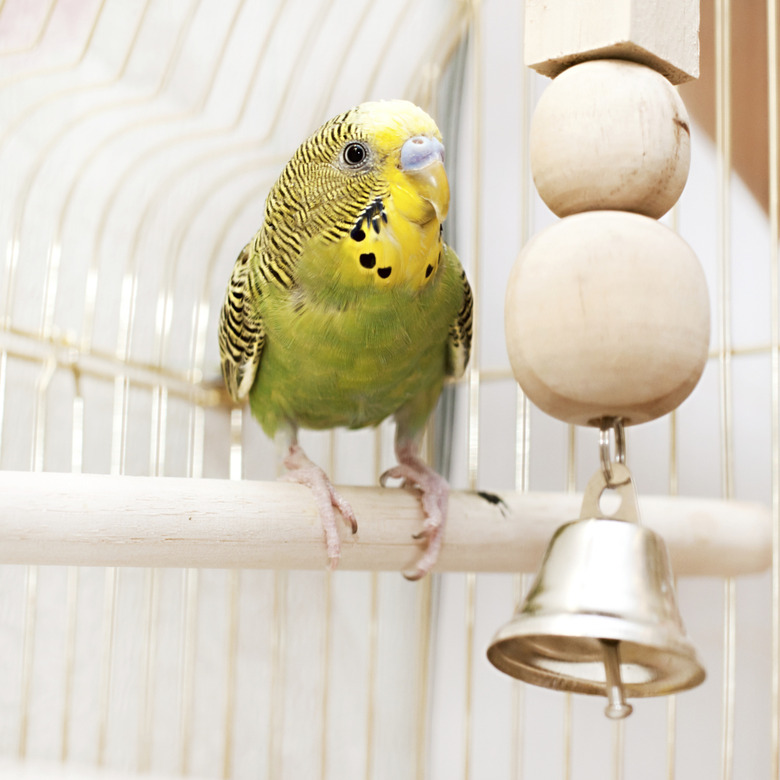What Are The Symptoms Of A Dying Canary?
When your canary is critically ill or injured, he'll stop eating and drinking; he'll become less sociable, and more lethargic and quiet. It might take a while for you notice symptoms, though: An ailing canary's instinct is to hide illness because, in the wild, he's at greater risk of predation.
Dying Canaries Aren’t Sociable
Dying Canaries Aren't Sociable
A healthy canary sleeps on the highest perch in his cage. He's quick and curious, and will immediately investigate new treats or toys in his cage. He'll sing and socialize with other birds. When your canary is sick or hurt, he doesn't want to play. Instead of hanging out on his perch, he'll sit on the floor of the cage in a corner, turned away from other birds. Your sick canary will be listless and may sleep a lot more than usual.
Dying Canaries Look Different
Dying Canaries Look Different
When your canary is thriving, his appearance shows it. He'll preen and groom to keep his feathers are shiny and clean. His eyes are bright. But when he's critically ill, a canary will stop paying attention to grooming, and he'll look dusty. His eyes may present discharge or may be glued closed.
Canaries have high body temperatures naturally because of fast metabolism. They fluff out their feathers to retain heat. A healthy canary will occasionally fluff his feathers, but a sick or dying canary always appears puffy. When he stops eating, he loses weight rapidly — even healthy specimens don't typically have much body fat. The sick canary's weight loss will cause his body temperature to fall.
Dying Canaries Need Veterinary Treatment
Dying Canaries Need Veterinary Treatment
If your canary exhibits the behaviors or appearance of dying or serious illness, he needs immediate veterinary care. Place a small towel in the bottom of a small box that has holes for ventilation, and pack the bird gently inside. Provide the veterinarian details about your bird's condition and behavior. Bring along a fecal sample in a sealed plastic bag or small jar. Your canary's feces gives his veterinarian important clues about the bird's health. Yellow or green feces indicates an infection and could be very serious. Diarrhea indicates severe illness.
Old Canaries Need Special Care
Old Canaries Need Special Care
Canaries live 10 to 15 years in captivity. As your canary reaches the end of his life, he'll gradually become quieter and less active. He won't move around as much due to joint problems. Arthritis causes leg swelling that can make it impossible for your canary to support his weight. He may develop visible tumors. When your canary's health problems start affecting his daily life, consider taking him to the veterinarian and discussing euthanasia. Otherwise, he may suffer a painful and prolonged death.
References
- Canaries: A Complete Pet Owner's Manual; Thomas Haupt
- Association of Avian Veterinarians: Bird Health Exam
